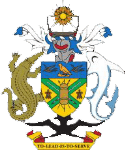Project Time-frame: 2013-2018
Project Background:
The Marine and Coastal Biodiversity Management in Pacific Island Countries herein referred to as the 'MACBIO Project' is assisting five island countries in managing their marine biodiversity. The countries the project supports includes Solomon Islands, Fiji, Kiribati, Vanuatu and Tonga. The project supports these five countries to meet their National Biodiversity targets as set out in their National Biodiversity Strategic Action Plan ( NBSAP) and the 2011-2020 Strategic Plan of the Convention on Biologcal Diversity. This is also inline with Aichi Targets 2,11,14 & 15; Sustainable Development Goals 13 & 14 and Pacific Oceanscape Framework SP 2,3, &4.
By managing marine biodiversity, it is expected to (i) strengthen institutional and individual capacity, (ii) to manage and conserve biodiversity in marine and coastal ecosystems and (iii) MACBIO supports sustainable economies and livelihoods of Pacific Island Countries.
Marine Ecosystem Service Valuing:
MACBIO is undertaking economic assessments of marine and coastal ecosystem services, and supports the integration of results into national policies and development planning.
Marine Ecosystem Services are often initially invisible and unrecognized, can reach the scale of national GDP value and need to be sustainably explored, managed and conserved.
Culture and Society in Solomon Islands is intimately tied with Ocean and its ecosystem services. Ecosystem Services, described as the benefits that humans receive from ecosystems, are often not fully considered in decisions because market fails to reveal their true value. Failure to consider the role that marine ecosystems play in to inequitable and unsustainable marine resource management decisions.
In 2015, the MACBIO Project undertook Marine Ecosystem Service Valuations in all five partner countries including the Solomon Islands. Some highlights included:
- Subsistence fishing was valued at SI $442.2 (US $58.9) million a year.
- Inshore artisanal fisheries was estimated at SI $70.3 (US $9.4) million/year
- Offshore tuna was valued at SI $1,659.80 (US $221.1m) million annually; governemnt revenue from this fishery in 2013 was 27% of this value.
- Deep sea minerals produced a value of SI $998,200 ( US $133,000) a year
- Tourism and Recreation had a gross export value of SI $118.7 (US $15.8) million a year
- Coastal Protection was valued between SI $31-52 (US $3.3-5.6) million a year
- Carbon Sequestration produced a value of SI $161.9 ( US $21.6m) a year
Marine Spatial Planning :
MACBIO supports partner countries in collecting and analyzing spatial data on different forms of current and future marine resource use, establishing a baseline for national sustainable development planning. Aiming for integrated ocean management, marine spatial planning facilitates the sustainable use and conservation of marine and coastal ecosystems and habitats .
Marine spatial planning is an inter-sectoral and participatory planning process that seeks to balance ecological, economic and social objectives, aiming for sustainable marine resource use and prosperous blue economies.
In 2015, the Solomon Islands Government technically facilitated by MACBIO hosted an inhouse , cross-Ministrial Ocean Summit to explore synergies , conflicts , developments and conservation opportunities in regard to marine resources in the national EEZ. At the summit, the Government decided that a more integrated EEZ -wide spatial planning approach would benefit the future of the Solomon Islands.
In 2016, the cabinet decided to support more integrated ocean governance and the Ocean 12 meeting established an Ocean Technical Working Group and decided to develop detailed roadmap , including for spatial ocean planning.
Over the coming years the MACBIO Project will provide ongoing technical assistance to the Solomon Islands Government in support of this important objective.
Vision: A healthy , secure, clean and productive ocean which benefits the people of Solomon Islands and beyond.
Effective Management:
MACBIO collaborates with national and regional stakeholders to document effective approaches towards sustainable marine resource management and conservation.
The project encourages and supports stakeholders to share tried and tested concepts and instruments more widely throughout partner countries and the Oceania region.
MACBIO is facilitating stakeholder-based efforts to document and disseminate lessons learnt from Learning, Demonstration and integration sites.
In the Solomon Islands MACBIO supports marine and coastal biodiversity management on the learning site Arnavons, Isabel Province and the integration site East Rennell, Rennell-Bellona Province.
Contact Person: Lysa Wini-Simeon, National Focal Point, MECDM Office Phone: (677) 26036.
Website: macbio-pacific.info/solomon-islands/ macbio-pacific.info/
